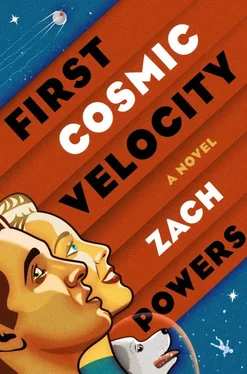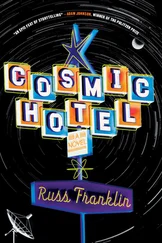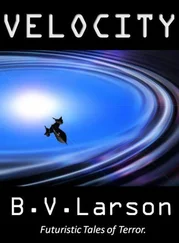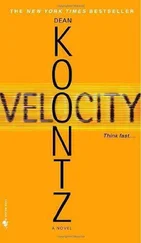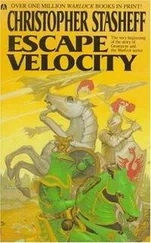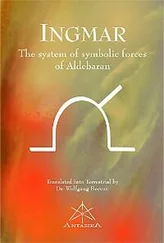Next, one of Giorgi’s relatives, a brother by the looks of him, spoke, or tried to. He managed a few words, and then fell into tears. A few more words, more tears. Most of what he said seemed familiar to Leonid, and he recalled the words were parts of the Psalms the old village priest had used before the Soviets hauled him away. Even before the famine, there had been enough funerals for Leonid to have learned the usual phrases. Here, though, any reference to the creator was absent. No lord s , thy s , god s , almighty s . Just the little poem at the start of each Psalm. My soul cleaves to the dust . Turn my eyes from looking at vanities . The brother choked out a few final words, face wet from crying, and someone, maybe a sister, led him from the graveside.
Giorgi’s mother stepped forward and touched the coffin, caressing the wood as though it were her son’s skin. Leonid thought that it was probably more like skin than Giorgi’s own, crisped in the fire, flake and ash. She turned to face the semicircle of mourners. Her eyes were pink but her face dry. She thanked everyone for coming. At her words, behind her, the cemetery’s caretakers cranked a handle and the straps supporting the coffin lengthened, lowering Giorgi into the ground. The mourners turned and left. The sound of shovels piercing the dirt reached Leonid as he ducked his head back into the waiting car.
• • •
WHEN THE CONVOY stopped again, it was in front of a row of townhomes that still showed scars from the German occupation. Roofs had been rebuilt and windows replaced, but the stone of the walls bore white gashes and dark streaks, gouges and burns. At the sight of so many shiny black cars, several children on the opposite side of the street halted in the middle of a game of Dragon. They stared openly at all the strangers, paying particular attention to anyone in uniform.
Ignatius crossed over to the children. She grinned and spoke to them, and the children laughed at whatever she said. She pulled a handful of candy from her pocket and distributed it, reprimanding a girl who tried to take more than one piece. Everyone but Leonid had already siphoned into the house when Ignatius recrossed the street.
“Do you always carry candy with you?” asked Leonid.
“You never know when you might need a piece,” said Ignatius.
“You’ve never shared with us.”
“You never seem hungry.” She turned around in place, observing the buildings and the few cars other than those the funeral party had arrived in. Far down the sidewalk, a couple strolled arm in arm. “I like streets like this. I’m from the country, a collective farm. Well, it’s collective now. When I was a child, it was just a farm, but everyone in the area worked there anyway. A few buildings with kilometers and kilometers of land. The first time I went to the city—and it was not even a real city, just a town—I knew that was where I had to be. A place where you would every day come across people you didn’t know by sight, much less by name. But I like streets like this because it’s a little of both. For this one block, you might know everyone, but anonymity is just around the corner.”
“Do you ever think about what it’s like for Nadya, for whom no such corner exists?”
“It’s my job to make sure no such corner exists for any of the cosmonauts. So yes, I think about it often. But there’s one difference. Nobody knows Nadya. They just know her face. Her accomplishments. Part of being famous is being anonymous. A hero isn’t a person but an act. An ideal to worship. That’s what it is. Worship. In a nation without a god, we must provide an outlet for faith. We must show the people that greater heights exist, not on some ethereal plane, but right here on Earth. Or, in Nadya’s case or yours, in outer space.”
“So we’re just symbols, not people?”
“Of course you’re people. Just not the people that everyone thinks you are.”
Ignatius unwrapped one of the candies from her pocket, a Lobster Neck, the outer shell like streaked brass. The white wrapper crinkled as she kneaded it into a ball between her fingers. She held the candy in her other hand, observing it as if it were a smooth pebble, something she’d stumbled across on a riverbank instead of pulled from her pocket. She opened her mouth and pushed the candy toward it, but stopped, and instead offered the piece to Leonid. He took it and sucked on it without really tasting.
“Do you know the General Designer?” asked Ignatius.
“I know of him, but we’ve never met.”
“At his last rocket test, there was an explosion. Somewhere around a hundred people died.”
Leonid gulped down a mouthful of sugar-sweetened spit, almost choking down the candy with it.
“Marshal Nedelin was among those who died.”
“I only met him the once,” said Leonid. He recalled that meeting, the graciousness of the man, how even Nadya had seemed at ease with him.
“This is a dangerous business.” She pulled out another Lobster Neck and plopped it in her mouth. She looked up at the tops of the buildings, where the little architectural flourishes, a superfluous crenellation, a pattern in the bricks, were evidence that the structures predated the Revolution.
“If he’d survived,” continued Ignatius, “Giorgi, that is. If Giorgi had survived, he would have flown the next mission. The Chief Designer believes he has a capsule ready for reentry.”
“Believes?”
“I have my doubts. How many dead now? And not one success. Not a real success, at least.”
Leonid looked at her. She had already admitted that she knew the truth of the twins, but Leonid still felt as though he should keep the secret. Of course Ignatius knew. There was never a moment when she appeared unprepared, as if the big leather jacket she wore contained not just candy but all the answers, as well. Ignatius glanced at Leonid and caught his stare and held it for a moment.
“Now that Giorgi’s dead,” said Ignatius, “there’s only one trained pilot. The Chief Designer plans for her to finally complete the mission she couldn’t five years ago.”
“She’ll fly?”
“And I think it unlikely that she’ll survive. At least not so likely that I’d bet on it. The Chief Designer is a dreamer, a noble one, but sometimes the dream gets in the way of his better judgment. The whole plan was a mistake. Tsiolkovski’s folly. But it was the Chief Designer who turned Tsiolkovski’s perverse science into outright deception. Twins not as experiments but as expendable.”
“Why are you telling me this?”
“Nadya’s life can’t be put at risk. If she were to die on this flight, I couldn’t cover it up. It would be a scar on the face of the nation.”
“Stop the Chief Designer.”
“He has Khrushchev behind him, so I’m not in a position to act. My superiors would prefer that I not cross the First Secretary himself.”
“I’ll talk to the Chief Designer.”
Leonid turned toward Giorgi’s family home, but Ignatius grabbed him by the shoulder, a firm grip though not unfriendly. She reached into her pocket, the one on the opposite side of the jacket from where she’d pulled the candy, and retrieved a piece of paper folded over several times into a palm-sized square. She handed the paper to Leonid.
“What is it?” he asked. There was no mark that he could see on the paper to identify it.
“Nadya’s inside the house,” said Ignatius. “You have a car. Buy me the time I need to resolve this issue.”
“How am I supposed to do that?”
Ignatius crunched through the outer shell of the candy in her mouth and chewed away at the shards. She clapped Leonid on the shoulder and walked away, not toward the house, but toward the street corner she had gestured to earlier, the corner around which she would find only strangers. Leonid unfolded the paper. A stack of rubles, doubled over and bound with twine, fell out. Leonid bent down and picked up the money. All the bills were in denominations of a hundred. He shoved the stack into the inner pocket of his uniform jacket. His knuckles brushed against the piece of paper the Americans had given him. He pulled the note out and read it. He put it back in the pocket. The inside of the paper Ignatius had given him was printed with a map of Ukraine, railways and train stations marked with red pen. He shoved that into his pocket, as well.
Читать дальше
